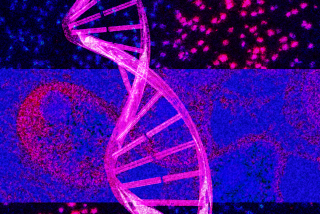Most INS Problems Fixed, New Audit Finds
- Share via
WASHINGTON — Still reeling from reports that thousands of immigrants with criminal backgrounds were improperly granted citizenship, the nation’s naturalization system received high marks Tuesday from an independent audit that found most of the previous problems had been fixed.
Only eight months ago, an audit by KPMG Peat Marwick flunked all but one of 24 Immigration and Naturalization Service regional offices that process citizenship applications.
The follow-up study by the auditors found that only four of the offices--none in California--are out of compliance with new quality control standards. And most of the errors uncovered at these sites were technical, not substantive.
“We have made a dramatic turnaround,” INS Commissioner Doris Meissner said at a news conference. “This is no small feat. This audit shows that systemic problems that had existed in the naturalization process for the last 15 years have been fixed.”
In a separate review, Meissner said the INS has moved to revoke the citizenship of 1,200 people who were recently naturalized under the Clinton administration’s aggressive Citizenship USA project. In most cases, she said, the applicants lied on their applications and should be rejected because of their criminal records.
Officials are still studying 4,000 files in which improper naturalization is suspected.
“The damage is already done,” said Rep. Lamar Smith (R-Texas), chairman of the House immigration subcommittee, in a statement. “How many crimes are going to be committed by individuals who were wrongly naturalized while the INS tries to revoke their citizenship? How many individuals who should not have received the high honor of citizenship will never be removed?”
The KPMG audit was prompted by reports that about 180,000 people were granted citizenship without undergoing thorough background checks. The April report found widespread problems of sloppy paperwork, filing omissions, conflicting instructions and failure to conduct a mandatory supervisory review of all applicants with criminal records. The new study revealed errors in only a dozen of 4,000 cases.
In response to the first audit, the INS reorganized its field offices, improved procedures and conducted training sessions for staff members.
“The INS has made great strides,” the auditors say in the new report. “It is clear that [the agency] has made significant improvements in the internal controls . . . and greatly reduced the risk of incorrectly naturalizing an applicant.”
But KPMG said many field offices remain inefficient, and suggested that the INS hold a “best practices” forum at which employees can swap strategies.
“It is imperative that the level of quality continues to improve,” the report states.
Immigration advocates praised the audit, but stepped up their demand that the INS address the long line of 1.8 million people--400,000 of them in Southern California--waiting to become Americans.
“Now that the fog hanging over the naturalization process has lifted, the light will begin to shine on the enormous backlog,” said Frank Sharry of the National Immigration Forum. “Citizenship and the right to vote are the cornerstones of our democracy, and the growing naturalization backlogs effectively deny those rights and opportunities to future citizens.”
Meissner agreed that the backlog is the next issue for her embattled agency to tackle. The wait to become a citizen is now as long as two years in some parts of the country--four times the INS goal of six months.
“Our challenge now is the backlog,” Meissner said in an interview this week. But she declined to outline specific goals for how quickly the backlog would disappear, or how applicants would have to wait. “We still need to ask for some patience,” she said.
Times staff writer Patrick J. McDonnell contributed to this story.
More to Read
Sign up for Essential California
The most important California stories and recommendations in your inbox every morning.
You may occasionally receive promotional content from the Los Angeles Times.










